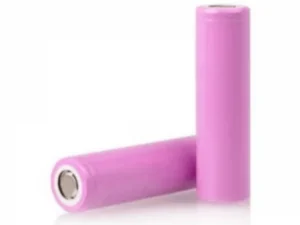Introduction:
Lithium-ion batteries have become an integral part of modern technology, powering our smartphones, laptops, and many other devices. Although they offer numerous benefits, they do have a limited lifespan. As time passes, these batteries may start to show signs of wear and tear. In this post, we’ll explore the telltale symptoms of a failing lithium-ion battery and provide valuable tips to extend its lifespan. Let’s dive in!
What are the symptoms of a bad lithium ion battery?

Extended Charging Time
If your device takes significantly longer to charge than it used to, it may indicate a degraded lithium-ion battery. Over time, these batteries lose their ability to hold a charge efficiently, leading to prolonged charging times.
Reduced Battery Life
A common frustration is when your device’s battery no longer holds a charge for as long as it did when it was new. If your smartphone, laptop, or other gadgets die quickly after being fully charged, it’s likely time to consider a battery replacement.
Excessive Heat During Charging
Lithium-ion batteries are sensitive to overheating, which can pose safety risks. If you notice your device becoming uncomfortably hot while charging, it may indicate a failing battery that should be replaced promptly.
Failure to Charge
When your device refuses to charge at all, it is a strong indication that your lithium-ion battery has reached the end of its life. In such cases, a battery replacement is usually necessary.
Unexpected Shutdowns
Frequent unexpected shutdowns, even when the battery appears to have charge remaining, can be a sign of a deteriorating battery. Replacing the battery might be the solution to resolve this issue.
Inaccurate Battery Indicator
If your device consistently displays inaccurate battery levels, resulting in abrupt shutdowns, it’s a clear sign that your lithium-ion battery may be reaching the end of its useful life.
Sluggish Device Performance
As a lithium-ion battery ages, it may struggle to deliver sufficient power to meet the device’s demands, leading to slower performance. If your device seems unusually slow, consider the battery as a potential culprit.
Tips for Extending the Lifespan of Your Lithium-Ion Battery

- Use a Quality Charger: Invest in a reputable charger designed specifically for lithium-ion batteries. Cheap or incompatible chargers can damage the battery and reduce its longevity.
- Avoid Extreme Temperatures: Exposure to extreme temperatures, both hot and cold, can harm lithium-ion batteries. Store and use your devices in moderate temperature environments.
- Charge Smartly: Avoid overcharging your battery, and try to keep it between 20% to 80% charge whenever possible. Overcharging can stress the battery and shorten its lifespan.
- Regular Use: Regularly using your device helps maintain the battery’s health. Avoid leaving it unused for extended periods, as infrequent use can lead to capacity loss.
- Store Properly: If you need to store your device or spare lithium-ion batteries, keep them in a cool, dry place. Avoid leaving them in direct sunlight or extreme environments.
Conclusion
Lithium-ion batteries have revolutionized our portable technology, but they do have limitations. Recognizing the signs of a failing lithium-ion battery can help you take proactive steps to replace it before potential safety risks arise. By following the tips provided, you can prolong the lifespan of your lithium-ion battery, ensuring better performance and a safer experience with your devices. Remember, taking care of your battery will ultimately enhance its longevity and overall efficiency. Stay informed and stay safe!
